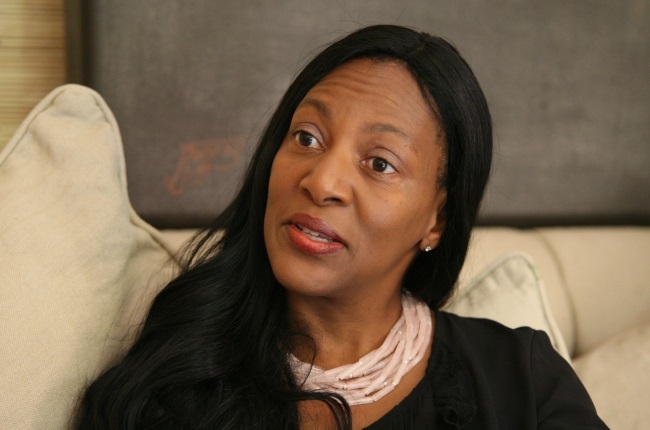
Accomplished businesswoman Andy Kawa’s story has made headlines over the years as she sought justice after having been raped in Gqeberha.
More than a decade ago, she was abducted and raped multiple times on a beach in PE while taking time to have a last walk on the beach before catching her flight back to Joburg.
She was eventually released after a harrowing few days and went straight to the cops – who bungled the investigation spectacularly. Subsequently, she sued SAPS for failing to properly investigate the attack.
She lost in the courts, but then took the case to the Concourt and won. They’re currently figuring out what her settlement will be.
Very recently, 13 years later, her rapist was arrested. His DNA was placed on the system, which subsequently linked him to Andy’s rape.
Andy tells her story in her own words in the below edited extract from her book, Kwanele, Enough! My Battle with the South African Police Service to get Justice for Women (published by Tafelberg, an imprint of NB Publishers):
- 9 December 2010
There’s something magical about Port Elizabeth’s coastline on those rare, still days when the west wind doesn’t whip around the bay, sending even seagulls scurrying.
That’s not often in a month, so when you do encounter a calm, clear day in iBhayi, you take advantage of it.
On a whim, I pull off Marine Drive into the King’s Beach parking lot.
It’s a wide expanse of concrete and even in December you can usually find a parking place. I head for a spot near a narrow road between two dunes, leading down to the sea.
There are three hours to go before my flight back to Joburg and there’s time for a walk on the beach. It’s busy – there are buses spilling out kids for the last school day before the summer break and there’s a circus tent set up and people are queuing for tickets. Going to the circus was always a special December holiday treat for me as a child.
Returning to those warm memories of being on a merry-go-round with my brother and sister makes me happy. I want to be part of the carefree crowd.
Read more | A DRUM Valentine’s Day with Ihhashi Elimhlophe and umuntu wakhe Ebony Ngcobo
I park next to a police van.
Two officers are inside, eating lunch and seemingly not in a hurry.
I have suitcases in the back of my car and sometimes vagrants hang around here looking for an opportunity to steal, so I appreciate the security the police presence brings.
I leave my shoes in the car, lock it, greet the cops and, carrying only my phone and keys, start on the path to the beach.
Halfway, I get paranoid about the car and go back to double-check that I’ve locked it.
Police or not, there are often car jammers about. There is also, I will later discover, a CCTV camera that picks up my movements.
King’s Beach is nearly two kilometres long, extending from Humewood on the western side, to the harbour wall on the east.
There’s space for everybody – lifesavers and swimmers on one end, joggers, dogs and walkers on the other.
It could be a best beach contender, were it not for the proximity of unsightly ore dumps and an oil tank farm, a legacy of apartheid’s spatial planning.
They loom over the dunes, giving the area an industrial look.
When the wind comes from the northeast, the manganese dust blows all over the show.
My friend Thembi and I have just spent a week at St Francis Health Centre near Port Alfred, being pampered, pummelled and starved.
We drove back to PE this morning and I dropped her at my dad’s place in New Brighton, while I came city side to meet an estate agent.
Nothing is too far away in PE.
It’s my mother’s birthday in a few days and I’ve put in an offer to buy her a house in Summerstrand, close to the beach.
The estate agent, as excited as I, popped a bottle of champagne while I signed the papers.
I’m sorry I won’t be around to see Mum’s face when they hand her the key to the front door, but I need to get home to Joburg and to my business.
My daughter Celi is returning to South Africa after completing her master’s in law at Oxford. She’ll be taking up a job at the Constitutional Court in the new year.
When I was a child, growing up in the township of New Brighton, north of the city, my father would sometimes bring us to King’s Beach.
In the late 1960s blacks weren’t allowed on the main beaches, but Dad didn’t let that bother him. He’d wake me and my brother and older sister before dawn and we’d be jumping over the waves by sunrise, before the white folk had stirred.
By the time they arrived we were gone, sand in our hair and salt on our lips. A lifesaver’s whistle brings me back to reality and I turn away from the teachers and parents hovering besides towels and mounds of clothing and make for the shoreline.
Read more | Bob Marley: One Love – A reggae-inspired evening
From there I head to the harbour wall, a fifteen-minute walk to a quiet place where starfish, clams and mussels cling to the rocks, covered in emerald seaweed.
Minutes later it was to turn into the worst day of my life.
Hermit crabs scuttle along the shore ahead of me. I can almost hear the clickety-clack of their legs. I once read somewhere that they’re known for colonising shells when they outgrow theirs and will fight one another for the best ‘home’.
If a vacant shell is too big, they’ll queue up and wait until the right-sized crab arrives, then grab its newly emptied shell.
Like humans, it’s natural to want shelter, to have somewhere to belong. Our physical surroundings play an important role in creating meaning and organisation in our lives.
That why I feel so pleased to be able to provide Mum with a new home. I had my dad’s house renovated a few years ago so that he could live in comfort.
Mum lives in Coega, about 20 kilometres away.
I’m engrossed in my thoughts and don’t see him approaching at first.
I’m focused on the sea to my right and the harbour wall ahead.
He comes from the dunes on the left, a pink and white women’s strawhat on his head and towel around his neck.
Something about his efforts to appear ‘beachy’ don’t ring true.
As he draws closer, I see his eyes and sense danger. I swing round, away from him, quickening my pace. As I turn, so does he, pretending to go back from where he came.
Seconds later he’s at my back.
‘Don’t scream. If you make a noise, I’ll kill you.’
He wrenches a ring that is precious to me from my finger and pockets it, then takes my sunglasses and my car keys.
My phone he throws into the sea.
I’m filled with a sense of dread. This isn’t a robbery.
Something ghastly is about to happen.
This is an edited extract from Andy Kawa's book, Kwanele, Enough! My Battle with the South African Police Service to get Justice for Women (published by Tafelberg, an imprint of NB Publishers). It is available at Reader's Warehouse and in bookstores nationwide.



















